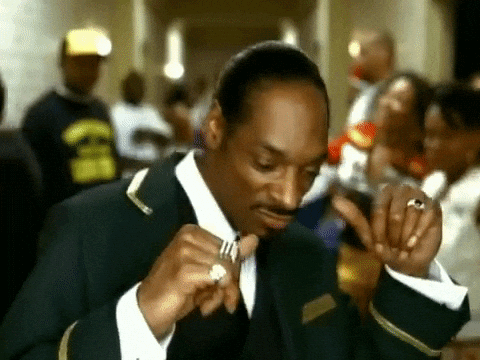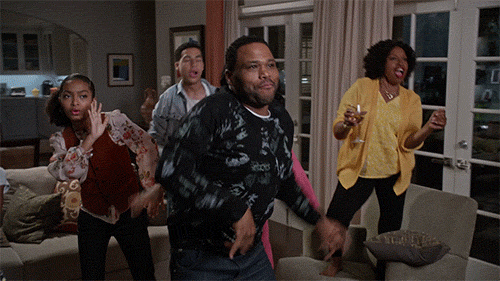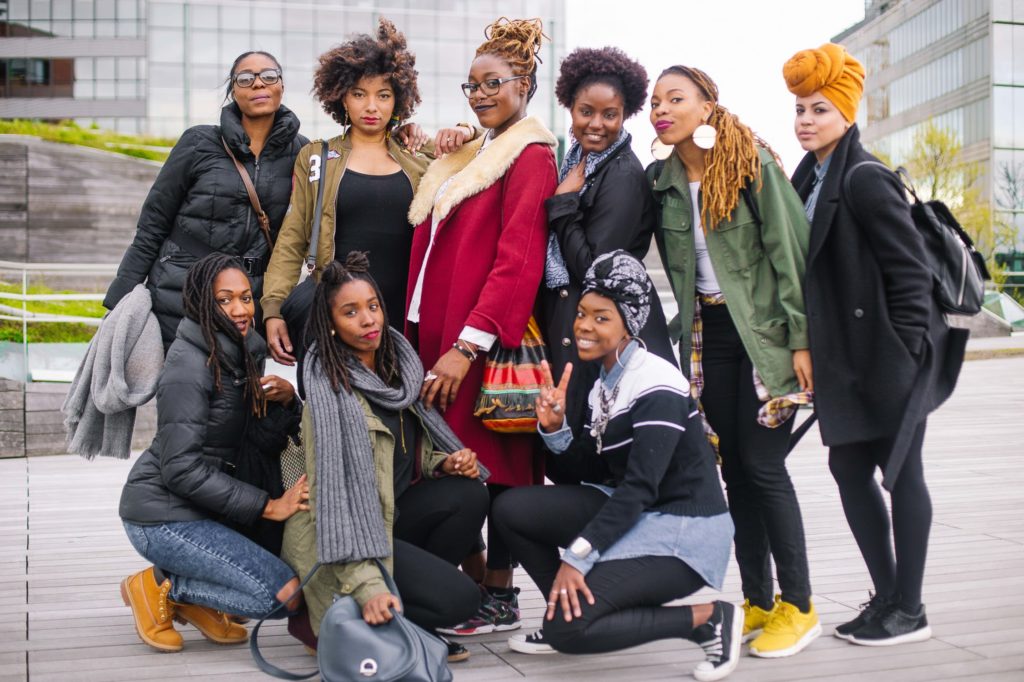After shout I can’t help but noticed the difference between cultural spaces. As the Black community within the blues dance community find each other, the thing I’ve always felt, becomes overwhelmingly apparent. The difference is stark. Also it’s about more than just bringing in people of a different culture: it’s also about understanding the implicit biases which places value on how people act. Let’s explore Blackness vs Whiteness: event spaces.
As I sit at dinner, after a hard day I find myself laughing. Not just any laugh, the loud rolling thunder of Black laughter, filled with passion and lack of discomfort over my emoting. The table roars with me and jokes fly back and forth. It felt as though a weight was lifted from my chest. I could finally be me. For as long as I can remember I’ve never been loud, but in that moment it became clear again that that line shifts depending on what group of people I’m with. Our laughter was inappropriately loud in white context (as the table near us passive aggressively tried to tell us) and yet, in a Black context, I was still very quiet.
During talks about being inclusive, assumptions are made that the dominant culture is everyone’s culture. Nah.
Black spaces have:
- Hierarchy
- Respect
- Passion
- Unabashed emotions
- Jokes
- Empowered sexuality
- Style
- LOVE
- Genuine care
- Side eye
- Cultural markers
- Shade
The general feeling of these spaces is totally different. Black spaces tend to be more relaxed and more community-oriented. Still, not in the way that the blues community typically talks about it. Being community-oriented is more than just putting up signs, making safer spaces policies, and playing improv games. Being community oriented means having everyone look out for each other, know each other’s names, introduce each other, hang out outside of dance, carpool together, watch each other’s children, and typically attend church together. Community-oriented is the leadership knowing your name or if they don’t know your name they at least know who your friends are, and check in with you about how you’re doing in life. The leadership gives you advice and show they care, some are willing to even take on the roles of family.
Recently I went to a training at a beach house and found it to be one of the Blackest space that I’d been in a long time. Regardless of the number of people that were not Black there were many aspects about it that made it feel that way for me. One was the fact that even though things ran explicitly on time, the Black people and white people (who have become like family to me) totally understood why I was always running a little bit late. There was almost always music playing and our down time teasing always occurred over dinner time. I found myself feeling comfortable asking for emotional support from elderly women in a way that didn’t just feel like they were going through the motions. Laughter rang throughout the house. Seasonings, hot sauce, hanging out and storytelling was rampant. It was just incredibly relaxed and incredibly Black. So much so at one point I forgot to go to code switch and interacted with white folk in a Black manner.

When I go out dancing to blues music or swing, it’s very decidedly not Black. I have to code switch with the blues community almost as much as I have to code switch to go to the doctor’s office. I often feel like a foreigner in dances that were originally by my people. To me, white spaces feel sterile. It feels like walking on eggshells and being surrounded by strangers. I feel like I’m playing a video game without knowing the rules while everyone else seems to know how to play but no one seems exactly be enjoying the game either. Everything about my personality has to be repressed, everything runs exactly on time meaning I’m often slightly stressed, and things that feel incredibly rude to me happen regularly. As the community starts to learn more about Black Culture, I’m curious if they recognize that on some level they are just going through the motions. Inviting more Black people in the scene will not fix this cultural problem. This is not to say that there’s anything in particular wrong about the way the White Community runs events, but to say that it’s really different.
Even with my anxiety, when walking into a Black space I feel at home within 20 minutes, because I trust the leadership if no one else. The longer you stay in a relationship with these people the more they feel like family – like true family. When was the last time you went to a dance event and wanted to tell most of the people in the room a non dance related success in your life? Better yet, when was the last time you wanted to just talk about your hardships with them? if your answer is “never”, that’s part of the problem. Of course, there’ll always be people you don’t like or trust, and bad situations but that there are people who travel and see each other so frequently but know nothing about each other that says something about the community-at-large.
There is also the strangeness of the fact that there is little bottom or top in the blues dance community. Where are elders and where is our youth? About a year ago I went to a West African dance class- one of the first things I noticed was not only it were there youth at the event but that they were the children of the organizers. it was clear that they were regulars there, and they had options for how much they wanted to participate. be that dancing or drumming it was about as much as a part of their life as it was important to them to pass on that lineage. Granted youth does not necessarily mean under 18 but around college-age, students should be supported more in our community if it were to be a Black space. At the same time, the lack of Elders age wise is distressing. Not all Elders can dance but it doesn’t mean they don’t have a place within the community. They’re there for emotional guidance and to carry on the tradition and to maintain the space. Additionally they generally keep the youth in place and can be an emotional support for them beyond their nuclear family.

I find it strange that we don’t have people in the community that aren’t dancers. The spouses of people who are dancers who just want to support should be able to attend as much of the community as the dancers are. Additionally, perhaps a person struggles musically but is extremely excited about music should have a place within the community? Maybe they just like making pies and hanging around talking. We don’t have space for them within the current blues dance community and Lindy Hop community. There is no structure and understanding for the fact that this type of community is important, more than just bringing in Black instructors.
When Black people talk about the space feeling very white, I suggest taking some time and thinking about how things would be different if you went to a different country. How out of place you might feel and yearn for what you know. Then realize that’s what they are trying to describe to you.

The more I’ve worked in predominantly white spaces, the more I yearn for home. It’s just not the same. I’m making this year the year of reconnecting with my community.